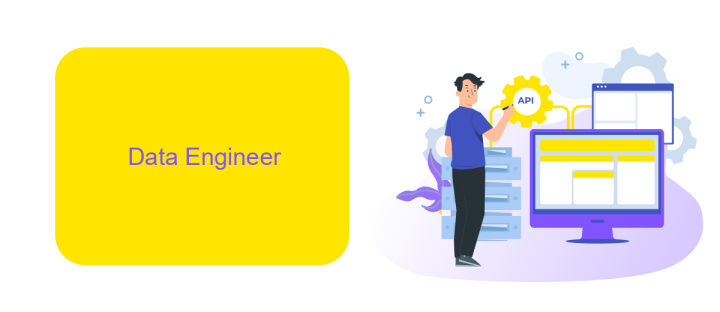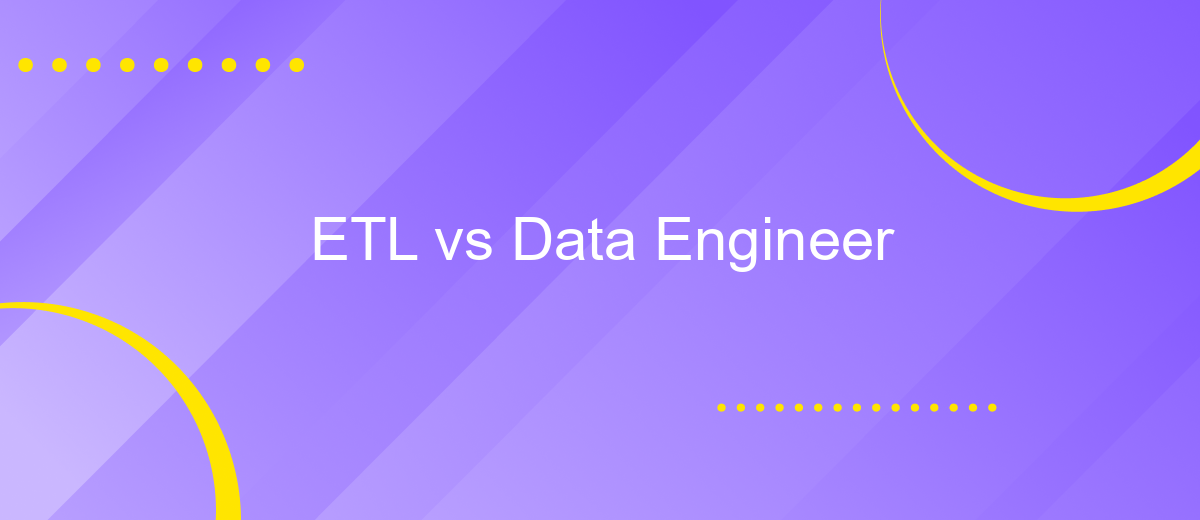ETL vs Data Engineer
In the realm of data management, the roles of ETL (Extract, Transform, Load) processes and Data Engineers are often discussed and sometimes confused. Though both are crucial for handling and optimizing data flows, they serve distinct functions. This article explores the differences, responsibilities, and key skills associated with ETL and Data Engineering, helping you understand their unique contributions to data-driven enterprises.
ETL
ETL stands for Extract, Transform, Load. It is a process used in data warehousing and business intelligence to move data from multiple sources into a single, consistent data store that is then loaded into a data warehouse or other target systems. The ETL process is essential for integrating and preparing data for analysis, ensuring that data is accurate, consistent, and accessible.
- Extract: Data is extracted from various source systems, which can include databases, APIs, and flat files.
- Transform: The extracted data is transformed to fit the desired format or structure. This step may involve data cleaning, normalization, and enrichment.
- Load: The transformed data is then loaded into the target system, such as a data warehouse, where it can be used for reporting and analysis.
Tools like ApiX-Drive can simplify the ETL process by automating data extraction and integration from multiple sources. ApiX-Drive provides a user-friendly interface to set up integrations without coding, making it easier for businesses to manage their data workflows efficiently. By leveraging such tools, organizations can save time and resources while ensuring data accuracy and consistency.
Data Engineer

A Data Engineer is a professional responsible for constructing and maintaining the architecture that allows for the collection, storage, and analysis of data. They design, build, and manage scalable data pipelines that transform raw data into formats usable by data scientists and analysts. This involves working with a variety of data storage technologies, such as SQL and NoSQL databases, as well as data processing frameworks like Apache Spark and Hadoop. Ensuring data quality and implementing data governance policies are also critical aspects of their role.
Data Engineers often collaborate with other teams to integrate various data sources, ensuring seamless data flow across systems. Tools like ApiX-Drive can be instrumental in this process, as they facilitate the automation of data integration between different platforms and services. By leveraging such tools, Data Engineers can streamline workflows, reduce manual intervention, and enhance the overall efficiency of data operations. Their work is crucial in enabling organizations to derive actionable insights from their data, thereby driving informed decision-making and strategic planning.
ETL vs Data Engineer

ETL (Extract, Transform, Load) and Data Engineers play crucial roles in managing and optimizing data workflows, but they have distinct responsibilities and focus areas.
- ETL Developers: They design and implement ETL processes to extract data from various sources, transform it into a useful format, and load it into data warehouses or other storage systems. ETL developers often use tools like Apache NiFi, Talend, and Informatica to automate these processes.
- Data Engineers: They build and maintain the infrastructure required for data generation, storage, and processing. This includes creating data pipelines, ensuring data quality, and making data accessible for analysis. Data engineers utilize technologies such as Apache Spark, Hadoop, and cloud services like AWS and Google Cloud.
While ETL developers focus on the data transformation and loading processes, data engineers are responsible for the broader data architecture. Tools like ApiX-Drive can assist both roles by providing seamless integration capabilities, automating data transfers between various platforms and ensuring data consistency across systems.
Similarities and Differences

ETL (Extract, Transform, Load) and Data Engineering are both crucial in the realm of data processing and management. While they share some similarities, they also have distinct differences that set them apart. Both roles aim to ensure data is accessible, clean, and ready for analysis, but they approach this goal in different ways.
ETL focuses specifically on the process of extracting data from various sources, transforming it into a usable format, and loading it into a destination system. Data Engineers, on the other hand, are responsible for building and maintaining the infrastructure that supports large-scale data processing and storage.
- ETL: Concentrates on the data pipeline process.
- Data Engineering: Involves broader responsibilities including infrastructure, data architecture, and pipeline optimization.
- ETL: Often uses specific tools like Apache NiFi or Talend.
- Data Engineering: Utilizes a variety of tools and technologies, such as Hadoop, Spark, and cloud services.
Despite their differences, both ETL specialists and Data Engineers can benefit from integration services like ApiX-Drive, which streamline the process of connecting various data sources and automating data workflows. This can significantly enhance the efficiency of both roles, ensuring seamless data integration and management.
- Automate the work of an online store or landing
- Empower through integration
- Don't spend money on programmers and integrators
- Save time by automating routine tasks
Conclusion
In conclusion, the roles of ETL developers and data engineers, while interconnected, serve distinct purposes within the data management ecosystem. ETL developers focus on the extraction, transformation, and loading of data, ensuring that data pipelines are efficient and reliable. On the other hand, data engineers take a broader approach, designing and maintaining the architecture that supports large-scale data processing and analysis. Both roles are crucial for the seamless flow of data within an organization, and understanding their differences can help businesses allocate resources more effectively.
Moreover, leveraging tools like ApiX-Drive can significantly streamline the integration process, making it easier to connect various data sources and automate workflows. By utilizing such services, organizations can enhance the efficiency of their ETL processes and support the broader data engineering framework. Ultimately, a collaborative approach that combines the strengths of both ETL developers and data engineers, supplemented by powerful integration tools, can lead to more robust and scalable data solutions.
FAQ
What is the difference between ETL and a Data Engineer?
Do Data Engineers need to know ETL processes?
Can ETL be automated, and how?
What skills are essential for a Data Engineer?
How does ETL contribute to data quality?
Apix-Drive is a simple and efficient system connector that will help you automate routine tasks and optimize business processes. You can save time and money, direct these resources to more important purposes. Test ApiX-Drive and make sure that this tool will relieve your employees and after 5 minutes of settings your business will start working faster.


